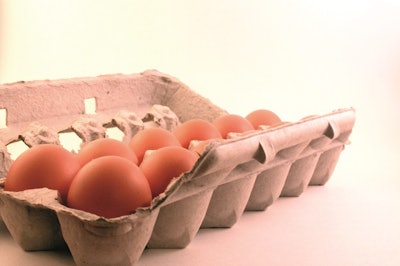
Global cruise company Norwegian Cruise Lines Holdings Ltd. (NCLH) announced its plans to source 100% cage-free eggs by year-end 2025.
Its timeline involves sourcing 25% in 2022, 50% in 2023, 75% in 2024 and 100% by the end of 2025. NCLH owns brands including Norwegian Cruise Line, Oceania Cruises and Regent Seven Seas Cruises.
NCLH’s animal welfare commitment contains a caveat that states, “In instances where supply chain insufficiencies, uncertainties or constraints impact our ability to meet these targets, we will modify as necessary and share this information accordingly.”
Over the last seven years, other cruise lines have made similar commitments. In 2016, Norwegian Cruise Line, owned by NCLH, committed to 100% cage-free eggs by 2025. In 2015, Carnival Cooperation pledged to source only cage-free eggs by 2025. The same year, Royal Caribbean announced it would source only cage-free eggs by 2022, however, it extended its deadline to 2025.
Cage-free caveats
Statements concerning supply chain issues’ impact on cage-free pledges, similar to NCLH’s, are now being included in companies’ animal welfare commitments to ensure no disruptions in its egg or egg product offerings. Additionally, they can prevent companies from having to make a statement as to why they did not meet their cage-free pledges.
For example, grocery store chains Walmart and Kroger recently announced they would not be able to supply 100% cage-free eggs by 2025. In their revised animal welfare statements, each grocer acknowledged the supply issues, the cost of production and the strain that grocer cage-free pledges have put on the U.S. egg industry.
Its likely that the egg industry will see more companies that made cage-free commitments without a caveat alter their pledges as 2025 draws closer. To help address this situation, the Food Marketing Institution (FMI) and United Egg Producers (UEP) partnered with Michigan State University, Purdue University and Kansas State University to conduct research focusing on the challenges that producers have while transitioning to cage-free housing.
The goal of the research is to support egg producers in showing their customers why their current cage-free deadline might not be feasible with the current issues the industry is facing. FMI plans to distribute this study to all its members, which includes major grocers that U.S. egg producers are currently supplying. The research should be completed before the end of 2022.


















